- Home
- Margaret Pemberton
A Multitude of Sins Page 2
A Multitude of Sins Read online
Page 2
A slight smile touched Jerome Kingsley’s harrowed mouth. ‘Don’t worry Adam. Elizabeth will come with me. There’s no point in her staying on in London alone.’
Adam stared at him. ‘But her music … the Academy.…’
Jerome’s green-flecked eyes were uncomprehending. ‘A piano can be played anywhere,’ he said bleakly. ‘I need Elizabeth with me. I’m going to be lonely enough without Serena. I don’t want to be separated from my daughter as well.’
‘Hang on a minute, Jerry. I don’t think you’ve thought this through,’ Adam began urgently, but it was too late. The mourners who had been close behind him when he entered the house now surrounded them.
‘Darling Jerome, what a terrible, terrible tragedy for you,’ a pretty young woman with bobbed dark hair said, kissing him effusively on the cheek. ‘I was simply devastated by the news, darling. Completely shattered.’ She clung to his arm as if for physical support. Adam eyed her ringless left hand cynically. Jerome was once more a prize in the marriage market. Perhaps a retreat to the Georges V was not such a bad idea after all.
He looked around the now crowded room for a glimpse of Elizabeth, but she was nowhere to be seen. Cloche hats clung to sleekly waved hair, daringly short skirts emerged from beneath minks and sables, cigarette smoke curled upwards from long ebony holders.
‘… and so we’re going straight from Nice down to Rapallo.…’
‘I dropped a thousand at roulette and another thousand at the baccarat table. Ferdie was furious.…’
‘My dear, they were lunching together quite openly and it was obvious what their relationship was.…’
He moved away. Serena had loved gossip, too, but Serena’s gossip had always been laced with impish humour and peals of affectionate laughter.
The doors leading into the dining-room had been opened, and he saw that the long dining-table was laden with both cold and hot dishes; kedgerees and sweetbreads; cold salmon and hams; black and red caviare and oven-hot blinis. The mourners moved towards the refreshments, and he knew that, for most of them, Serena was already forgotten, her funeral just another event in a busy social calendar.
The butler stepped across to him, saying discreetly: ‘I believe Miss Elizabeth is in the upstairs sitting-room, sir.’
Adam thanked him, grateful that at least one other person was anxious as to her welfare. The noise of talk and laughter followed him up the sweep of the stairs. How to explain to a ten-year-old that the party taking place was not meant to be disrespectful, but was normal funeral manners? He sighed. Even worse, how was Jerome going to explain to her that he was going to take her away from her school and her home? He knew what Jerome’s lifestyle was when he travelled. An itinerant round of hotels, restaurants, nightclubs, parties. How could he possibly imagine that Elizabeth would fit in with such a life? He sighed again, feeling suddenly much older than his thirty-four years, and far older than Jerome.
She was sitting hunched up on the window-seat, her arms hugging her legs, her eyes huge in her white face. ‘Hello, Beth,’ he said, entering the room and closing the door quietly behind him. ‘Has everything got too much for you?’
She nodded mutely, tears spilling down her cheeks and on to her black velvet dress. He was reminded of a stray kitten he had once taken home as a boy. She had the same look of bewildered helplessness. Of utter vulnerability. He sat down beside her, wondering what the devil he could say to comfort her. He had no young sisters, no nieces, no previous experience with children at all. He took her hands, saying awkwardly: ‘Your mother would hate you to cry so, Beth.’
It was the diminutive he had always used for her. The name she had used for herself when she had been too small to pronounce ‘Elizabeth’clearly. Her hand tightened in his, and she drew in a deep, shuddering breath.
‘But it’s all so h … h … horrid, Uncle Adam,’ she gasped, a fresh flood of tears coursing down her cheeks. ‘All those people downstairs are I … I … laughing and t… t … talking as if Mummy hasn’t died at all!’
A fresh gale of laughter floated up the stairs, and Adam’s good-natured face tightened. ‘They know your mother has died, Beth,’ he said, choosing his words carefully. ‘And they are all sorry, but they are also frightened. Your mother was young and she was ill for a very short space of time. They are frightened that if pneumonia could strike her down so suddenly and so fatally something similar could also happen to them. And because they are frightened and don’t want to think about it they are laughing and talking and trying to pretend it has never happened.’
‘Then, they’re s … s … silly,’ she said, a sob catching her breath, ‘and I don’t I … I … like them.’
‘Nor do I,’ he said, rising to his feet and drawing her to hers. ‘Let’s go for a walk and forget about them, shall we? If we borrow a couple of tea-trays from the kitchen, we might even be able to find a hill in the park that we can toboggan down.’
‘Do you think we ought?’ she began doubtfully.
He bent down in front of her, looking her straight in the eye. ‘It’s the sort of thing your mother would tell us to do,’ he said firmly, hoping that he was right, and not caring if he was or not when he saw the burden lift from her eyes. ‘Now, come on, find some wellingtons and a thick coat and some gloves. I haven’t tobogganed in years, and the snow won’t stay for ever.’
‘And so the concerto I played last year at the Academy I’m now going to play with the London Symphony Orchestra at the Central Hall in Westminster,’ she said with shy pride as they ploughed for a third time back up the hill with their tea-trays. ‘It’s a very great honour … Mummy was thrilled.…’ Her voice faltered. ‘I don’t think Daddy knows yet. Mummy was going to tell him when he came back from Geneva, but by the time he came back she was ill. He’ll be pleased, though, won’t he?’ Her eyes were anxious, but he was relieved to see that the sting of the cold and the exertion of their climb had put some colour back into her cheeks. ‘The London Symphony Orchestra!’ Her voice was awed. ‘I can hardly believe it!’
They had reached the crown of the hill and were placing their tea-trays strategically for the descent.
‘And when is this concert to take place?’ Adam asked, a frown furrowing his brow.
‘Oh, not for ages. I have masses of practising to do. Miss Rumbatin says I have to learn to think orchestrally at the piano. That when I play a piece I have to imagine Furtwängler conducting a fantastic orchestra, or perhaps Toscanini. I’m going to every orchestral concert that I can now, not just to piano recitals. All my pocket money goes on tickets.’
Adam stared down at her, his frown deepening. ‘If you were to go away for a while, would it mean you wouldn’t be able to play with the LSO?’
She settled herself on her tray and turned to look up at him. ‘No, of course I couldn’t. But I’m not going anywhere. You’ll come and hear me play, won’t you?’
He wondered if he should tell her. If he should gently break the news that Jerome intended taking her away from the Academy and disrupting her musical studies. ‘Beth …,’ he began and then hesitated. Jerome had told him of his plans only minutes after burying Serena. He had been understandably distressed and no doubt not thinking clearly.
‘Yes, Uncle Adam?’ she said expectantly, pale blonde strands of hair escaping from her woollen beret, her green-gold eyes wide and trusting.
‘Nothing,’ he said with a grin. Jerome was insensitive, but he wasn’t so callous as to brutally disrupt her life even further. ‘Beat you down to the bottom!’
She giggled with laughter, pushing herself over the lip of the hill and down, temporarily free from the weight of her grief, finding solace in the company of her father’s friend, who was her friend as well.
By the time they returned to Eaton Place it was dusk. The house was quiet, only desultory cliques of mourners remaining.
‘Ah, there you are,’ a weary-looking Jerome said, coming out into the hall to meet them. ‘I wondered where you had both got to.’
‘We’ve been to the park,’ Elizabeth said, the flush in her cheeks dying, her voice suddenly uncertain. ‘Tobogganing.’
Jerome looked at the tea-trays in their hands, the melting snow that had been kicked from their boots. ‘Of course,’ he said with a vagueness that irritated Adam. It was obvious that Elizabeth needed reassuring that she had not been disrespectful to her mother’s memory, and it was equally obvious that Jerome was unaware of her need and was going to say nothing to set her mind at rest.
‘Can I have a word with you, Adam?’ he said, taking Adam’s arm and steering him towards the now empty drawing-room.
‘Of course, Beth.…’ He turned round to indicate to her that she should follow them, but Jerome’s voice cut across his.
‘Change back into your black coat and shoes, Elizabeth,’ he said as they entered the drawing-room, and she remained standing alone in the hall ‘We’ll eat out quietly tonight. I’ve booked a table at the Savoy.’
‘Yes, Daddy.’ The exhilaration of the afternoon had deserted her. Her shoulders sagged, her hair hung wispily to her shoulders, and her voice was small and lost.
‘I want you to do a favour for me,’ her father said, oblivious of her need for comfort, closing the door on her and turning to Adam.
Adam checked his rising impatience. Jerome had been his friend for fifteen years. He had many virtues but sensitivity was not one of them, and it was useless to expect him to begin exercising it now.
‘Yes, what is it?’ he asked, pouring himself a warming brandy and moving towards the blazing fire.
Jerome seated himself in a winged leather chair, resolutely ignoring the sight of the over-full ashtrays that his guests had left behind and that his household staff had not yet had the opportunity to remove.
‘I want you to take roses up to Serena’s grave for me while I’m away. I know I can easily pay for the service, but I don’t want some faceless minion taking them for me. She’d hate it. Will you do it?’
Adam swirled the brandy round in his glass, glad that his friend’s insensitivity was not yet total. ‘Yes,’ he said, ‘but if you’re still adamant about leaving London I think I should tell you that Elizabeth won’t wish to accompany you. The Academy has arranged for a repeat of the Mozart concerto she played last year, only this time with the London Symphony Orchestra at the Central Hall.’
Jerome’s shoulders lifted imperceptibly beneath his hand-stitched Savile Row suit. ‘I’ll have to get in touch with the principal. Apologize. They’ll easily be able to find a replacement for her.’
‘For God’s sake, Jerry! Don’t you understand? Elizabeth won’t want them to find a replacement!’ Adam said explosively. ‘She’s been asked to play with the London Symphony Orchestra, for Christ’s sake! Can’t you understand what that must mean to her? It’s exactly what she needs right now. Months of hard work and total commitment that will ease her over Serena’s death.’
‘I appreciate your concern for Elizabeth,’ Jerome said tightly, and Adam felt his heart sink. When that particular note of determination entered Jerome’s voice, then nothing on earth would dissuade him from whatever course of action he had decided upon. ‘But she can study piano just as easily in Paris as she does here. I think you’ll find she will leave the Academy without a moment’s hestitation when she knows how much I want her to be with me.’
Adam groaned. He had no doubt that Jerome loved Elizabeth, but he was showing no understanding of her need for stability. The George V in Paris would be no substitute to Elizabeth for Eaton Place and the reassuring routine of the Academy.
‘You’re making a mistake, Jerry,’ he said tensely. ‘Elizabeth needs you, but she needs you here, in London. She needs you to be in the audience at the Central Hall when she plays with the London Symphony Orchestra. She needs the day-to-day routine that she has always known.’
Jerome rose to his feet impatiently. The house was unbearable without Serena in it. He had no intention of staying a moment longer than was necessary. And he wanted Elizabeth with him. And what he wanted he always got.
‘We’re leaving first thing in the morning, on the boat-train,’ he said abruptly. ‘Do you want to have dinner with us? I thought the Savoy would be quieter than the West End.’
Adam shook his head. ‘No,’ he said shortly. ‘Elizabeth needs you to herself this evening. Say goodbye to her for me.’
He was at the door before Jerome said conciliatorily: ‘Try to understand, Adam. I’m bitterly regretting every business trip I ever took that robbed me of time with Serena. I’m not going to make the same mistake again. From now on, wherever I go Elizabeth goes, too.’
Adam looked at his friend: rich, successful, powerful, and at that moment almost as vulnerable as his daughter had looked only a little while earlier. His anger disappeared. There were worse sins in life than wanting the companionship of a daughter.
‘It’s OK, Jerry,’ he said with an affectionate grin. ‘Have a good trip across the Channel and send me a postcard from Paris.’
Upstairs in her bedroom, Elizabeth heard the distant thud of the front door closing. She pulled a hairbrush through her hair with a pang of disappointment. It would have been nice if Adam had stayed and accompanied them to the Savoy. Almost immediately she felt a rush of guilt. It would be nicer still to be alone with her father. They had hardly had a minute together since her mother’s death. There had been arrangements for him to make, his friends had descended in droves, and when he had been alone he had seemed almost dazed. She put the ivory-backed hairbrush down on the glass tray on her dressing-table and picked up her hat and coat. Black velvet. She hated the touch and sight of it, but her father had insisted it be worn.
She sighed, slipped her arms into the sleeves, and set the tam-o’-shanter on top of her gleaming gold hair. When she grew up she would never wear black. Not ever. It would always remind her of the loss of her mother. Of standing in the bitterly cold cemetery and knowing that she would never see her again. Never be cuddled by her or kissed by her. Tears sprang to her eyes, and she dashed them away fiercely with her knuckles. She musn’t cry. Her father was alone, too, and he needed her to be brave and comfort him, just as she needed him to comfort her. From now on it would be just the two of them together. He would stop spending so much of his time in France and Switzerland. He would be at home when she needed him. He would be able to attend her concerts, perhaps even go with her to the Albert Hall, and the—
There was a light tap on the door, and Mrs MacBride, their middle-aged housekeeper, came into the room. ‘Are you all right, dear? Your father asked me to tell you that he’s ready to leave.’
‘Yes, thank you, Mrs Mac.’ Her small pointed face was white and strained, but her tears were held firmly in check.
Mrs MacBride regarded her with affection and compassion. If she had cried over her mother’s death – and by the dark rings carved beneath her eyes she had done so long and hard – then it had been in private. There was a strength in her that her ethereal looks belied. A determination of character that was wholly her father’s. At the thought of Serena Hughendon’s fragile blonde beauty being coupled with Jerome Kingsley’s reckless zest for life, Mrs MacBride shuddered. It would make a lethal combination when she grew older.
‘I’ll make sure there’s hot chocolate waiting for you when you get back,’ she said, glad that she couldn’t see into the future.
‘Thank you, Mrs Mac.’
Mrs MacBride watched her with pursed lips as she buttoned her coat. The Savoy indeed! There were times when she wondered if her employer was in his right senses. The child was only ten. It wasn’t the Savoy she needed, especially not on the day that her mother had been buried. It was scrambled eggs on toast, a milky drink, and an early night.
Her father was waiting for her at the foot of the stairs, and Elizabeth noticed with shock how the grief of the last few days had aged him. The lines running from his nose to his mouth had been gouged deep, and there was a sprinkling of grey at his temples that she had neve
r been aware of before. She slipped her hand into his and squeezed it tight. She loved him and she wasn’t going to lose him as she had lost her mother. She was going to look after him and see that he didn’t worry, or drink too much, or smoke too much. She was going to make sure that he lived for years and years and years.
‘I’m glad we’re going to the Savoy,’ she said, aware of how silently disapproving Mrs MacBride had been. ‘I like to look out on the river at night.’
They walked outside to the parked Daimler. ‘I’ve booked a window table,’ her father said, grateful for her understanding. ‘You can look out at the river all you want.’
Her hand remained firmly in his as the chauffeur carefully negotiated his way through the icy streets. Trafalgar Square was eerily empty, the biting cold and drifts of snow deterring even tramps.
‘I love you, Daddy,’ she said, nestling close to him as they left the Square and entered the Strand.
Jerome Kingsley’s rich dark voice was thick as he patted her hand. ‘I love you, too,’ he said, glad that it was dark in the rear of the Daimler and that she could not see the tears that had sprung to his eyes. ‘From now on we’re going to be together, Elizabeth. We’re not going to be apart. Never again.’
They slid to a halt outside the Savoy’s palatial entrance, and as Elizabeth stepped out on to the snow-cleared pavement, he felt the first stirrings of comfort, of grief eased. He had lost his wife, but he was still luckier than most men. He still had his daughter.
For once, he decided against his customary aperitif in the American Bar and went straight through into the River Restaurant. Many people claimed it to be the most beautiful restaurant in London, and Jerome was in agreement with them. The long, deep windows, heavily swathed in damask, looked out in the daytime over the Embankment gardens and the wide majestic sweep of the Thames. As they were seated Jerome asked that the curtains behind them be drawn back. There was a slight hesitation on the part of the maítre d’hótel, and Jerome smiled. ‘My daughter likes to look out at the river, even though it is dark,’ he explained, and the maítre d’hótel inclined his head.

 The Summer Queen
The Summer Queen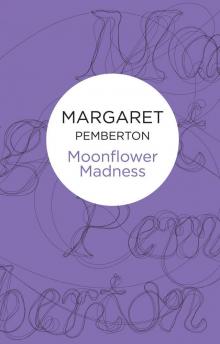 Moonflower Madness
Moonflower Madness The Londoners
The Londoners The Flower Garden
The Flower Garden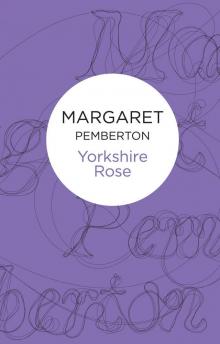 Yorkshire Rose
Yorkshire Rose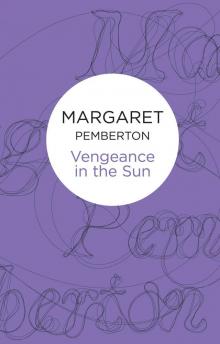 Vengeance in the Sun
Vengeance in the Sun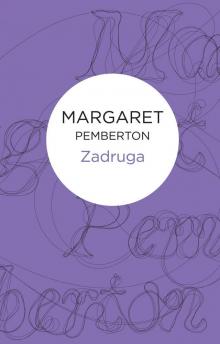 Zadruga
Zadruga Beneath the Cypress Tree
Beneath the Cypress Tree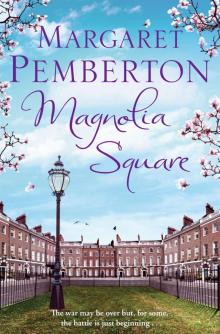 Magnolia Square
Magnolia Square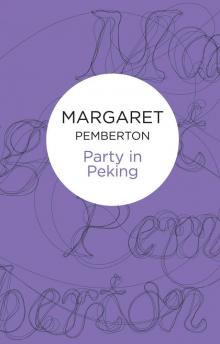 Party in Peking
Party in Peking Lion of Languedoc
Lion of Languedoc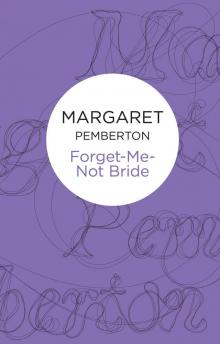 Forget-Me-Not Bride
Forget-Me-Not Bride The Guilty Secret
The Guilty Secret Rendezvous With Danger
Rendezvous With Danger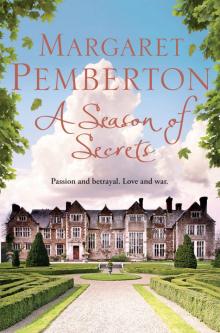 A Season of Secrets
A Season of Secrets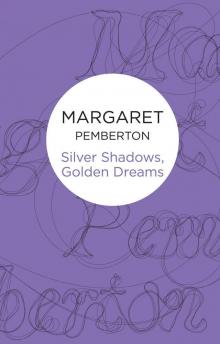 Silver Shadows, Golden Dreams
Silver Shadows, Golden Dreams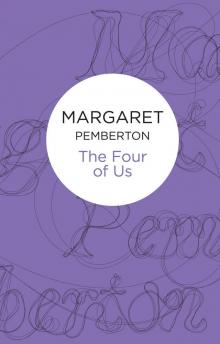 The Four of Us
The Four of Us Devil's Palace
Devil's Palace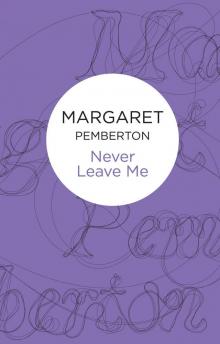 Never Leave Me
Never Leave Me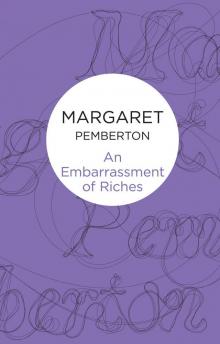 An Embarrassment of Riches
An Embarrassment of Riches African Enchantment
African Enchantment White Christmas in Saigon
White Christmas in Saigon Coronation Summer
Coronation Summer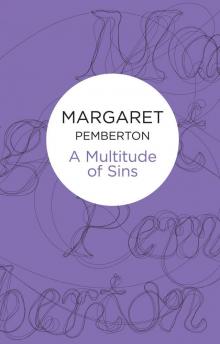 A Multitude of Sins
A Multitude of Sins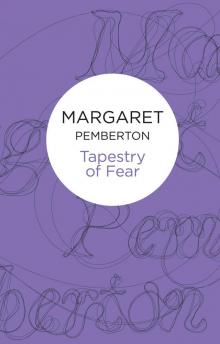 Tapestry of Fear
Tapestry of Fear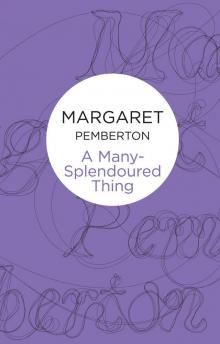 A Many-Splendoured Thing
A Many-Splendoured Thing